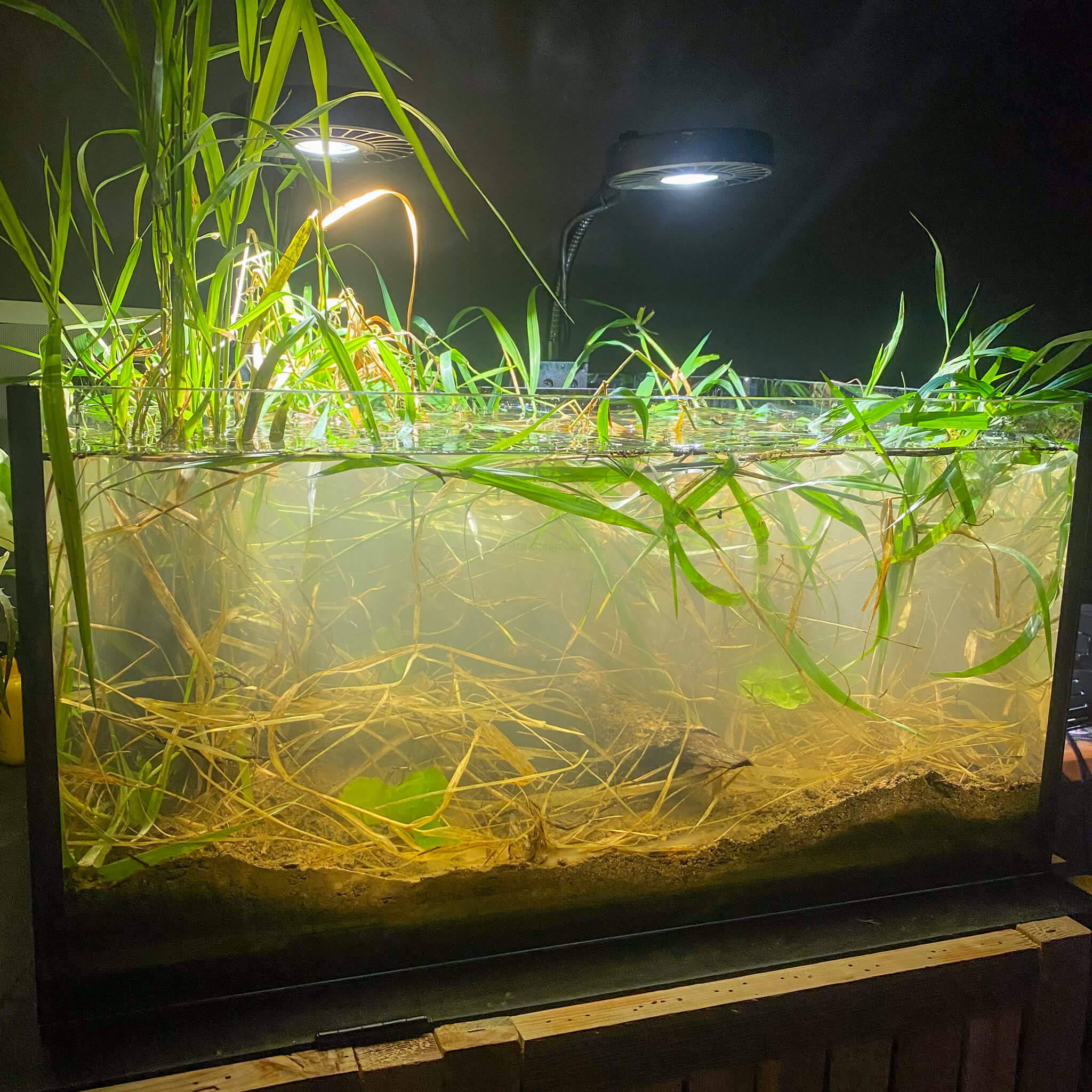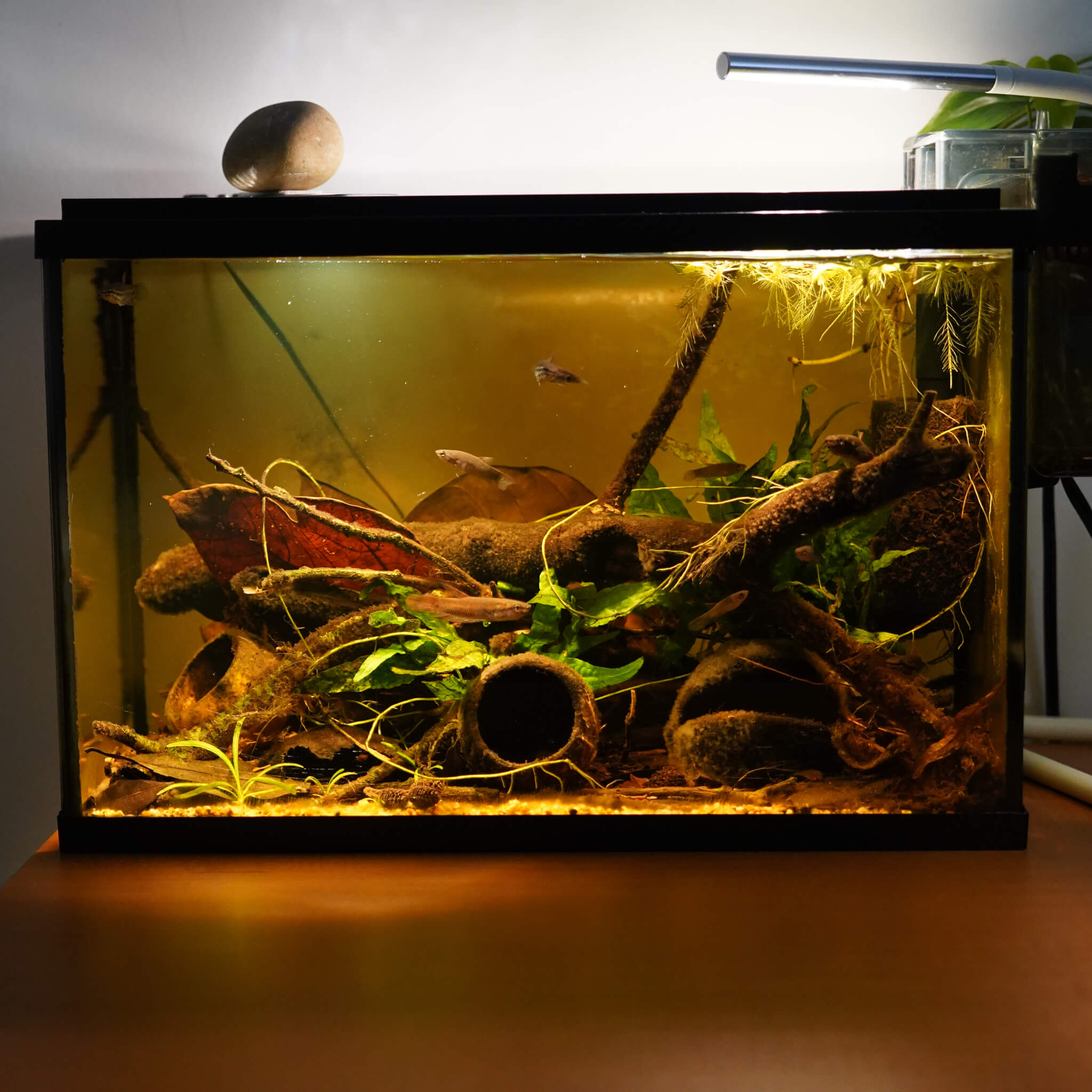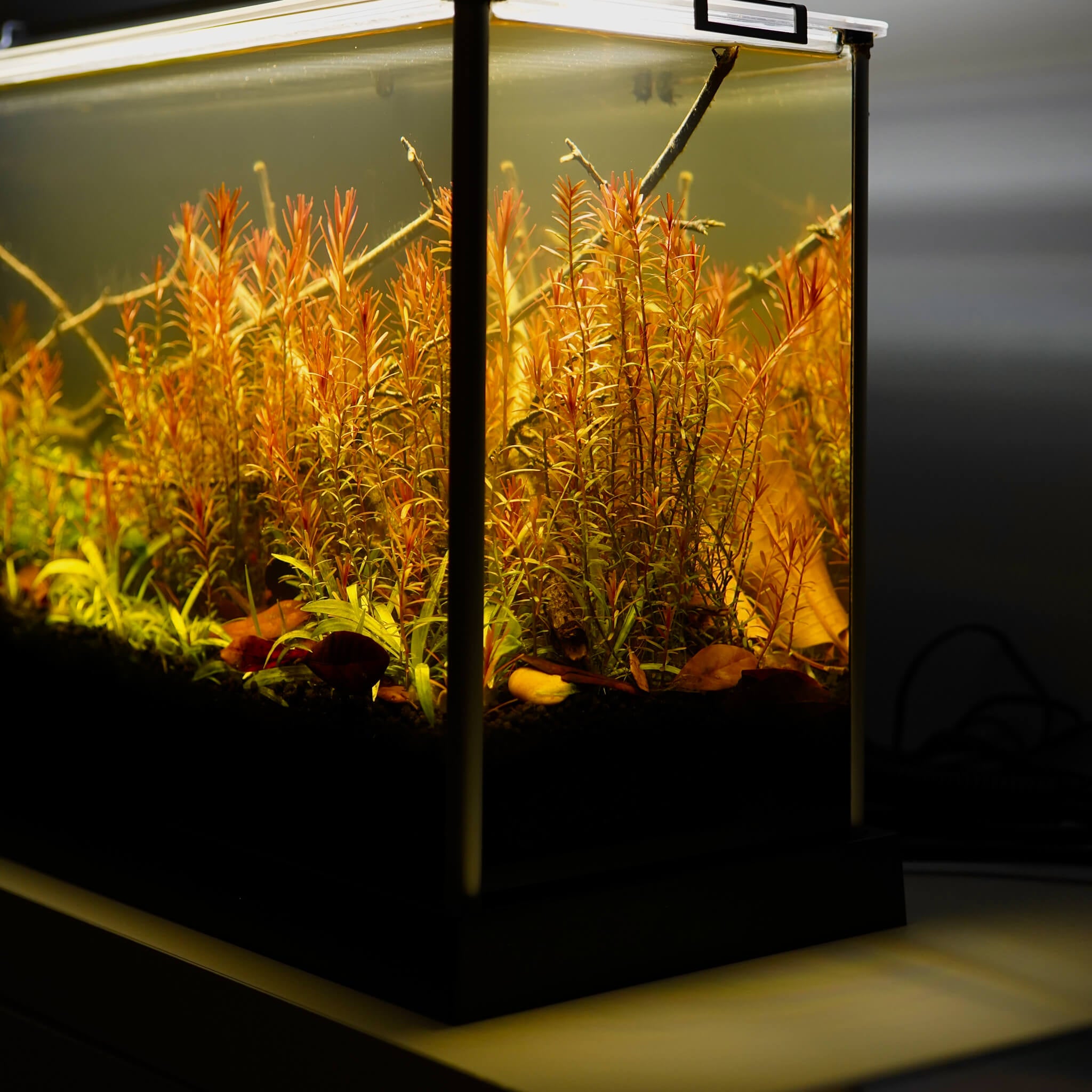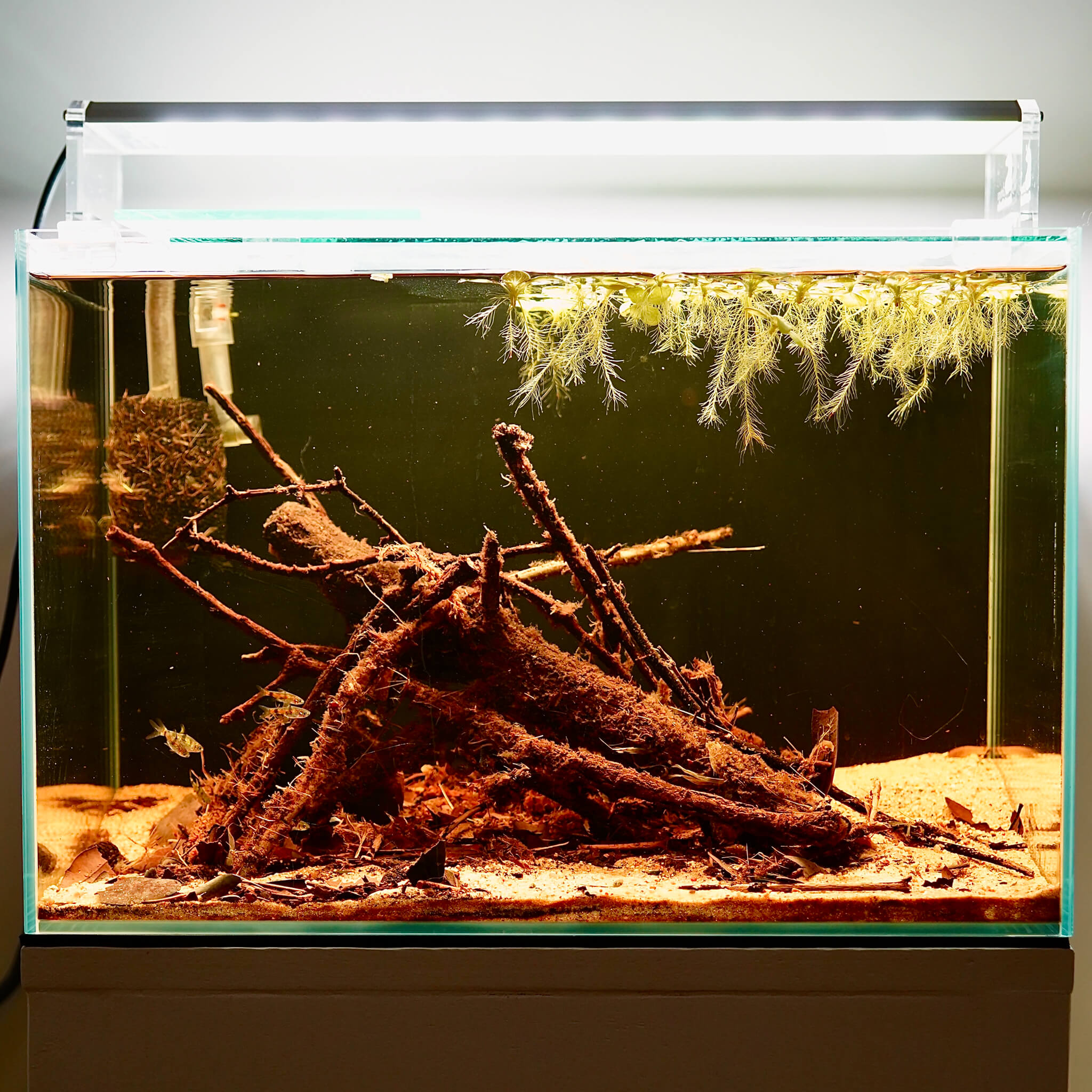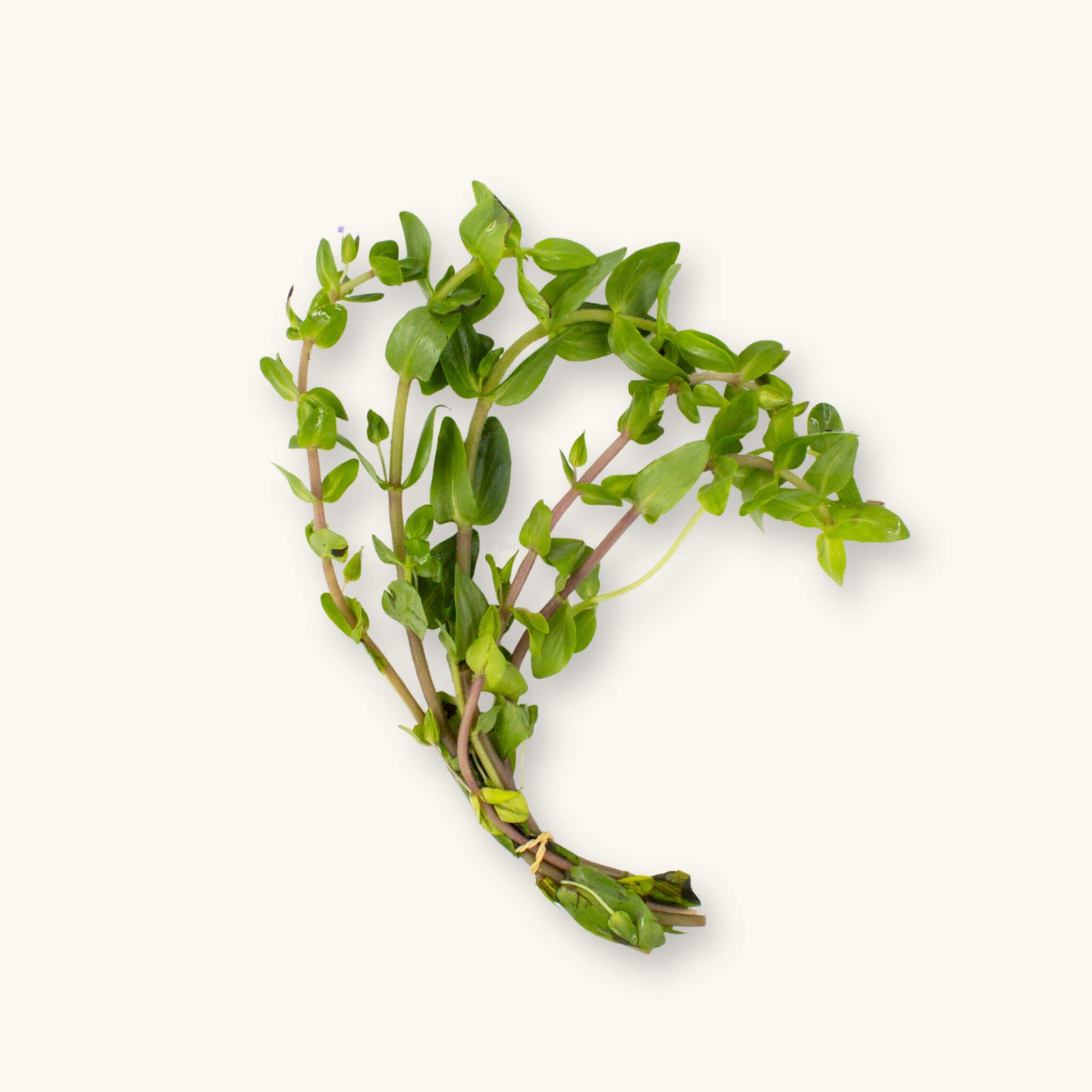
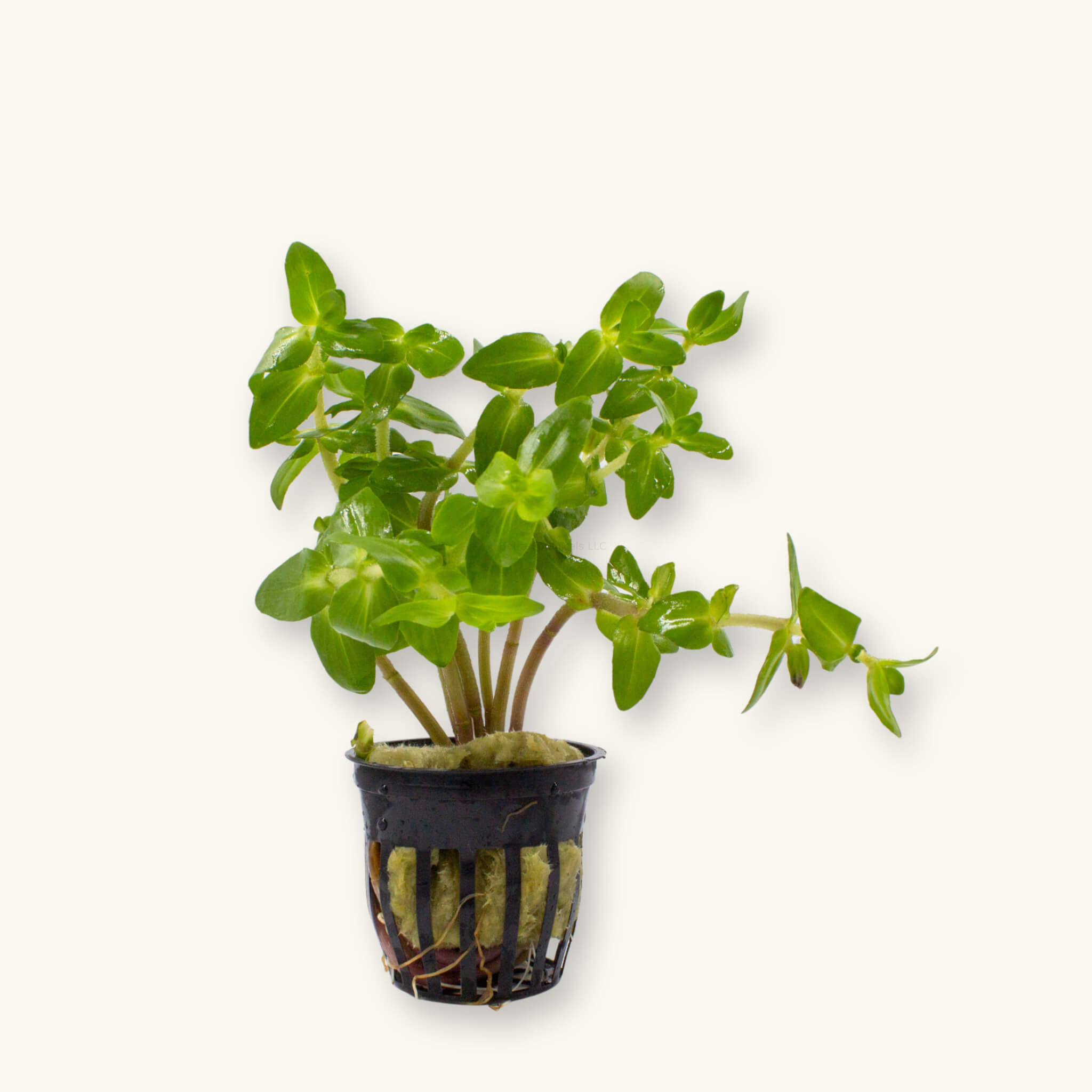
Bacopa Caroliniana
Bacopa caroliniana
Scientific Name: Bacopa caroliniana
Common Name: Bacopa
Bacopa caroliniana is a classic and easy-to-care-for stem plant for botanical method, blackwater, and biotope aquariums. Native to North and South America, this species features broad, slightly translucent leaves that develop a soft green hue under low light and can shift toward coppery-red tones near the surface under stronger lighting. Its upright, branching stems make it suitable for midground to background placement, where it creates a lush background.
Because of its adaptability, Bacopa is an excellent choice for blackwater and botanical method aquariums. The plant grows readily in a variety of water conditions and tolerates tannin-rich environments, while its fast growth rate makes it useful for nutrient uptake. When grown emersed, Bacopa can even produce small, delicate blue flowers, making it a versatile plant for both aquariums and paludariums. It loves a nutrient-rich substrate, so root tabs are recommended.
Propagation is simple: cut a healthy stem, replant it into substrate, and it will quickly root and continue to grow. This ease of propagation makes Bacopa an ideal choice for hobbyists who want to expand their aquascape over time without frequent purchases.
Caring for Bacopa caroliniana in Blackwater Aquariums
- Care Level: Easy; suitable for beginners and advanced aquarists
- Lighting Requirement: Low to medium; high light brings out reddish tones, but may encourage algae
- CO₂: Not required; supplementation enhances growth and coloration
- Growth Rate: Fast; helps absorb excess nutrients and stabilizes water chemistry
- Tank Placement: Midground to background; can be trimmed and replanted to maintain shape
- Native Habitat: North and South America; wetlands, rivers, and marshy areas
- Tint Tolerance: Thrives in low to medium tannin levels typical of blackwater aquariums
All Plants may contain snails or snail eggs. We keep them in all of our tanks for the benefits they provide. Our blackwater aquarium plants are provided by H2OPlants in adherence to their Shipping and DOA Policies. Your curated selection will arrive in their packaging separate from your botanical & merch orders.

Bacopa Caroliniana
contrast the tint with greenery
While the aesthetic appeal of tinted waters can be quite attractive to us, the recreation of nature—which includes both submerged and emersed plants—is the end goal. Flora helps to improve water conditions, feeding patterns, spawning displays, and territory building.
Aquatic Plant FAQs
DOA Policy
Please ensure that you add a heat pack or cold pack to your orders if temperatures in your area are above 90°F or below 40°F. Click for more info on our DOA Policy.
Are these plants duckweed and snail free?
All Plants may contain snails or snail eggs, small macroinvertebrates, and duckweed. We keep them in all of our tanks for the benefits they provide. We have experienced the presence of small snails, ostracods, daphnia, and beneficial detritus worms.
Are your plants only for tinted water conditions?
Nope! All of our plants will grow perfectly in untinted aquariums that have CO2 and aquasoils, or low-tech planted aquariums. Our selection, though, is optimized for emersed plant growth and low- to medium-tinted water environments.
What is your aquatic plant shipping schedule?
We’re a small company and ship Tuesdays & Thursdays only. Orders placed Wednesday–Sunday → Ship Tuesday. Orders placed Monday–Tuesday → Ship Thursday
Are your plants just for bettas?
Nope. Our aquatic plants are safe for almost all aquariums, terrariums, vivariums, and paludariums. Many of our plants can be grown emersed in filter compartments, vivariums, or incorporated into wabikua.
What are Tannins?
Tannins are natural compounds released by leaves, seed pods, and bark as they decompose in water. They soften water, gently lower pH, and create the characteristic tea-stained tint found in blackwater habitats. But their role goes far beyond color—tannins fuel beneficial bacteria, fungi, and biofilms, which form the foundation of a healthy ecosystem. They also offer mild antifungal benefits and help reduce stress in fish by replicating the natural conditions they’ve evolved in. At their core, tannins are plant-derived antioxidants that connect your aquarium to the same processes at work in wild flooded forests and streams.




